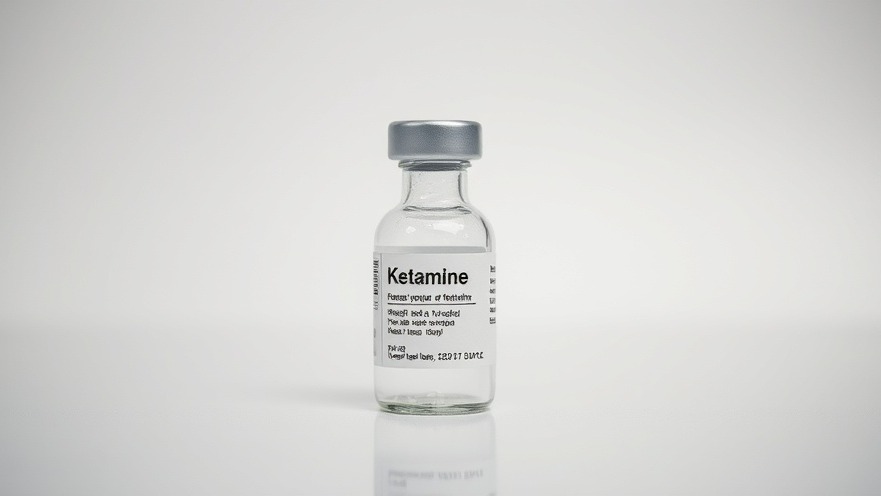
The Rising Threat of Ketamine Addiction in Today’s Society
As awareness of mental health challenges continues to grow, the spotlight has shifted to ketamine, a medically used anesthetic that is spiraling into the realm of misuse and addiction. Recent statistics indicate that deaths related to ketamine have surged by an alarming 650% since 2015 in the UK alone, drawing parallels to the widespread devastation caused by substance abuse in the past, such as the crack epidemic. This complex issue is not just restricted to certain demographics; rather, its reach persists across various age groups, particularly among young people who often perceive it as a less harmful 'party drug.'
Understanding the Effects of Ketamine on the Body and Mind
Ketamine provides a dissociative experience that many users find euphoric—dulling both emotional discomfort and physical pain. Yet, the temporary relief it offers masks severe long-term consequences, especially for the brain and body. Users may experience cognitive and emotional changes leading to chronic psychological dependency. Additionally, physical effects like dizziness and nausea are just surface symptoms; deeper damage unfolds as repeated use overwhelms the body's internal systems.
The Health Risks Associated with Long-term Ketamine Use
Long-term ketamine use leads to foundational health issues. Chronic users face a multitude of problems including severe damage to the heart, liver, and bladder. A particularly distressing outcome is the development of ulcerative cystitis, which can result in needing bladder surgery. This emphasizes that the sedative nature of ketamine can shift into harmful territory, causing not just physical dependency but also insidious changes to physical structures, leading to lasting damage.
Why Understanding Ketamine is Vital for Concierge Medical Practices
For concierge medical practice owners, it's crucial to flag issues such as ketamine abuse for the well-being of your patients. Acknowledging the realities of ketamine addiction won't just enhance patient safety; it helps build your practice's reputation as a knowledgeable and caring health provider. Ensuring that your clientele understands these risks allows for healthier lifestyle choices and better management of their wellness journeys.
How to Talk About Ketamine and Mental Health with Patients
Empathetic communication about the dangers of recreational substances like ketamine can lead to more trust between you and your patients. As a healthcare provider, you can leverage this understanding to reinforce the importance of holistic health practices, encompassing mental wellness strategies that negate reliance on harmful substances. A focus on emotional healing and resilience can guide your patients towards healthier methods of coping.
Actionable Strategies for Wellness and Prevention
Concierge practices should deploy educational sessions to inform patients about substance risks while promoting alternative coping mechanisms. Introducing mental wellness workshops and support groups can create awareness and offer your patients constructive channels for discussing their health in a safe environment. Staying ahead of these trends will not only enrich the lives of your patients but will secure your place as a leading medical service in your community.
Conclusion: Prioritizing Patient Wellness in the Era of Ketamine Abuse
The emergence of ketamine addiction in society calls for an urgent and proactive approach from healthcare practitioners. By integrating mental health strategies and education into patient care, you're not merely treating physical ailments but nurturing a holistic view of health. Your leadership in discussing and combatting issues like ketamine addiction will establish your practice as a trusted source of wellness and support. Now is the time to take these actionable steps and prioritize your patients' overall health.
 Add Row
Add Row  Add
Add 




Write A Comment